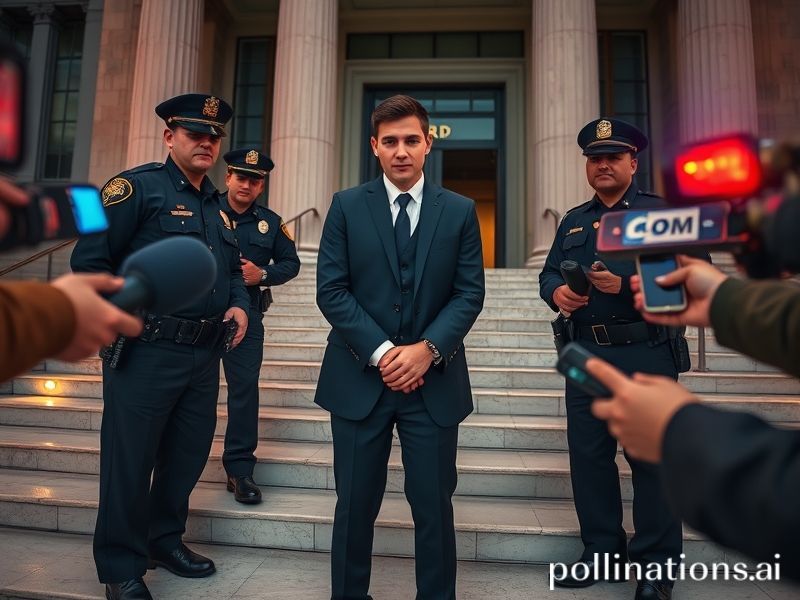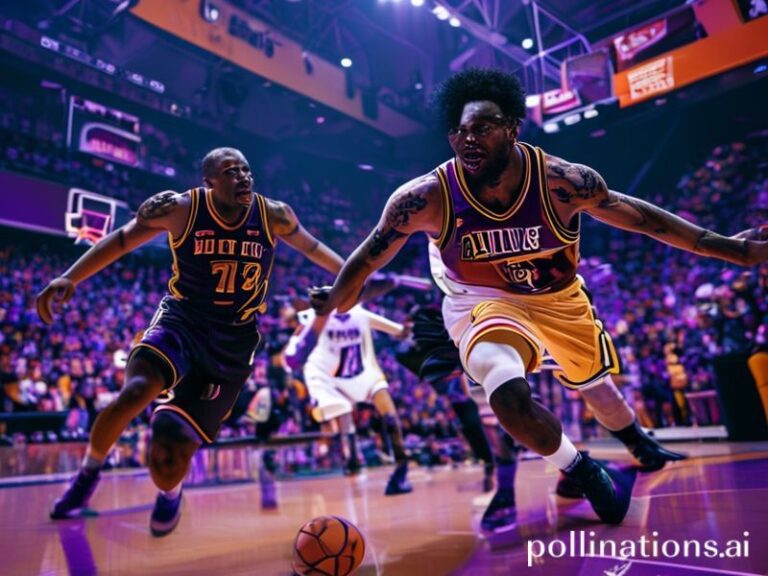Tyler Robinson Indictment: How One American Influencer Became the World’s Favorite New Financial Villain
Tyler Robinson Charges: A Global Spectator’s Guide to Another American Legal Opera
By Dave’s Locker International Desk
PARIS—When news broke that U.S. prosecutors had unsealed a 17-count indictment against influencer-turned-crypto-guru Tyler Robinson, the planet did what it always does when America stubs its institutional toe: it grabbed popcorn. From the glass towers of Singapore to the cafés of Buenos Aires, the reaction was less “How could he?” and more “Ah, another episode in the long-running reality show titled ‘Late-Stage Capitalism.’”
Robinson, 28, stands accused of securities fraud, wire fraud, money laundering, and—because the Department of Justice apparently enjoys theatrical flourish—“conspiracy to commit fraud against the entire known universe.” The indictment alleges he raised $120 million from retail investors via a token called $TYLR, promising 3,000% returns and a future in which “every human will own fractionalized beachfront NFTs on Mars.” Prosecutors say the money actually financed a lifestyle that included a Gulfstream painted matte black (for stealth, presumably), a 24-car garage in Miami, and a daily breakfast smoothie whose ingredients cost more than the average Bolivian annual wage.
Globally, the charges landed like a well-timed punchline. In Seoul, crypto traders opened leveraged short positions on irony futures. In Lagos, where the national currency has itself been something of an experimental token, citizens sighed at the familiar plot twist: charismatic millennial sells hope, disappears with liquidity. Meanwhile, the European Central Bank—currently busy explaining to 450 million people why their inflation isn’t inflation—quietly updated its risk models under the header “American Influencer Contagion, Subtype: TikTok.”
Why does Tyler Robinson matter to anyone outside the Lower 48? Because, dear reader, the world has become a single, badly ventilated casino, and Robinson is merely the latest croupier to swap the wheel for a ring light. His alleged crimes are domestic, but the fallout is delightfully multinational. Swiss private bankers—those discreet connoisseurs of other people’s panic—reported a surge in calls from “high-net-worth Gen Z clients” asking if their portfolios contain “any exposure to dudes who vlog from yachts.” In Dubai, regulators rushed out a circular reminding citizens that “influencer” is not a recognized custodian under Sharia-compliant finance, which is bureaucratese for “Please stop wiring money to Logan Paul’s distant cousins.”
The broader significance lies in what Tyler represents: the export of American grift culture at fiber-optic speed. The template is now franchised. You can find Robinson’s spiritual siblings flogging miracle wheat in Ukraine, ghost-mining concessions in Congo, and “AI girlfriends” in Indonesia. The props change—sometimes it’s wheat, sometimes it’s bored-ape JPEGs—but the script remains: promise exponential returns, weaponize FOMO, exit stage left before the second act. Washington may file charges, but the supply chain of credulity is global and just-in-time.
International regulators, bless their hearts, have responded with the urgency of a hung-over sloth. The U.K.’s Financial Conduct Authority issued a “Dear CEO” letter reminding executives that “crypto-assets backed by nothing but vibes” might pose risks. The Monetary Authority of Singapore, whose skyline Robinson once livestreamed from a rooftop infinity pool, is now debating whether to require influencers to display real-time blood-alcohol content on screen. And the G20, when not arguing over whose turn it is to buy coffee, has formed a working group called “FinTok Stability Board”—a title so oxymoronic it could only emerge from a committee.
Yet the most poignant commentary comes from the Global South, where micro-investors who converted life savings into $TYLR tokens are learning that “decentralized finance” often centralizes losses on the least insulated. In El Salvador, where Bitcoin is legal tender and financial literacy is still catching up, a taxi driver named Luis told our correspondent, “I thought Tyler was like the guy who invented the light bulb, but for money. Now I just want the bulb back.” His government, meanwhile, is too busy marketing volcano bonds to notice.
As Robinson hires a defense team whose hourly rates rival the GDP of island nations, the planet watches with the weary amusement reserved for recurring weather systems. The indictment is 68 pages; the lesson is one sentence: when the casino is everywhere, everyone lives next door to the roulette wheel. Until the next Tyler Robinson inevitably emerges—perhaps from a basement in Vladivostok or a villa in Ibiza—international audiences will keep their streaming subscriptions active. After all, the show is free, the stakes are imaginary, and the popcorn is priced in stablecoins.







